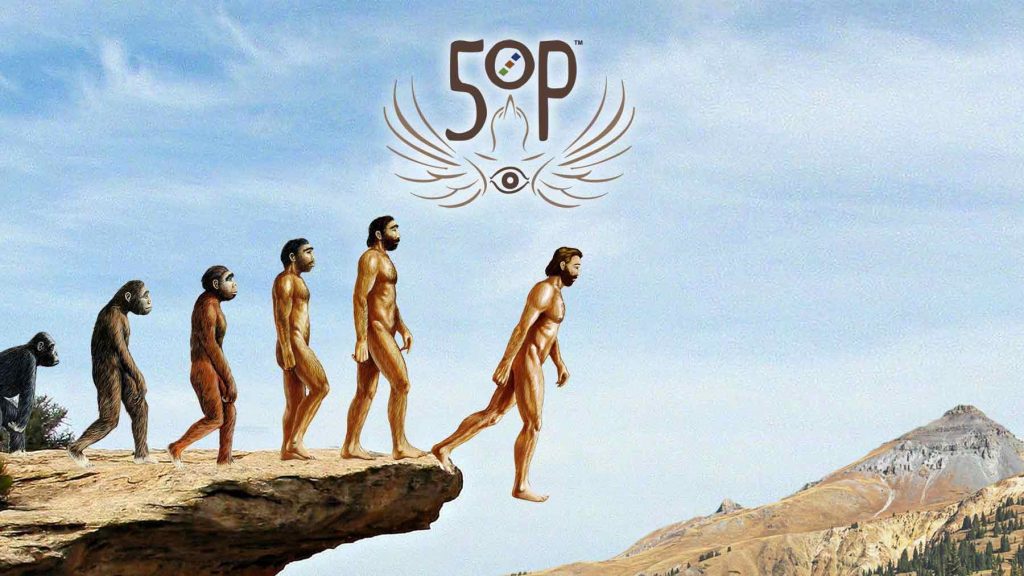
Welcome back to our series about instincts.
It’s of value to note at this point that our instincts are important and effective if acted upon in ways that serve us and those around us positively. Obviously we cannot live without them.
This series, however, is meant to illustrate how antiquated parts of our instincts in today’s world can lead to faulty reasoning, driving us toward divisive(def) and destructive ends.
In the last segment, I illustrated a timeline of human achievement, discussed the surge of human innovation since the dawning of agriculture 12,000 years ago, and identified how such rapid growth has outpaced the evolution of our instinctual responses, leading to greater stress and conflict.
Now it’s time to dig into ways in which our instincts have led us astray
In this segment we’ll discuss how our instinctual tendencies toward acquisition, affection, greed, imitation, and denial can steer us wrong.
The founding of agriculture laid the groundwork for the large scale growth of organic produce, and subsequently manufactured products later in our timeline.
Mass production, by contemporary(def) standards, was brought to bear in 18th Century England, where innovations in the textile industry made it possible to “reduce production costs by specialized labour and the use of machines.”1
Large scale production of textiles and other innovations in the 18th Century gave birth to the Consumer Revolution and the consumerism that sustains most economies today.2
Our instinct to acquire has since taken on a whole new meaning. Acquisition is no longer about fulfilling our basic needs and attaining key resources for survival. It now fuels our desire to procure(def) in excess, particularly in Westernized nations where ownership and consumption drives social status.
Materialism has sparked a tendency toward greed, or by definition the “selfish and excessive desire for more of something (such as money) than is needed.”3
Worse yet, we’ve taken to developing a sort of affection for the greedy and powerful, looking to them as leaders and idols… to the point of seeing such people as somehow more connected, beautiful, worthy, and/or intelligent than the rest of us.
We’re treading on very unstable ground when we grant our affections to greedy people, selling ourselves short, and allowing their powers to subjugate(def) the rest of us with financial abuses, unfair labor practices, manipulation, discrimination, shaming, divisiveness, and the like.
Furthermore, our adoration of wealth and power has led to imitation of those who possess it.
There’s no plain clothing for the sake of survival like there was in ancient history. There are BRANDS of clothing. So it goes for the vast majority of products in a branded world.
Who are the owners and endorsers of those branded products? People with status.
What we wear, the cars we cruise around in, the food we eat, how we entertain ourselves and others, even the water we drink… all exemplify OUR individual status. Some will even go into massive amounts of debt to get there.
Imitation has become the driving force in a competition with each other for status.
We all participate in this dance to one degree or another no matter who we are. Brands are one example, but there are other ways to bow to status (more on that in the 3rd segment of this series).
But should we really value status without some sort of moral substance and good character? Certainly we recognize the value in that, right? Shouldn’t we be applying these standards to all people equally, regardless of status? Yet our instincts steer us wrong.
Need I say any other name than Harvey Weinstein? We let people like this, with status, get away with abuses for years.
That’s denial of self and denial of one another. No one should be forcibly subjected to abuse, none of us should be made to feel silenced about it, and we need to call it where we see it. Not a healthy way for any of us to be living.
Too many of us dream and talk our lives away about what we’re going to achieve, how we’re going to appear to others, and how we’re going to attain status to the point of futility(def). Too much time dreaming leaves little time for actual DOING.
We must exercise accountability for ourselves, and hold those closest to us, and those with status to account.
In Conclusion
I’m not saying that brands are a bad thing, or that we shouldn’t look up to people with status, or that wealthy people are blanketly more immoral than anyone else.
However, if we’re going to understand ourselves from a humanitarian perspective it’s important to boil down our built in flaws and acknowledge their impact on how we conduct ourselves as human beings, both in terms of how we treat ourselves and how we treat each other. It’s a spirit that can bring us all together, and a valuable step toward living humanitarian values.
Our flaws can and should bring us together… but unchecked, they can also drive us apart. It’s up to us to choose.
Up next in the series “3 ways our antiquated instincts are failing us,” the third segment will discuss how our instincts can create and reinforce divisions between us.
In the fourth and final article I’ll do a dive into how we can thrive upon the immensely positive aspects of our instincts by leveraging our understanding of their antiquated parts.
Perseverance and wellness to all out there!
ALL articles in this series:
3 ways our antiquated instincts are killing us (part 1 of 4) - Intro + Fear & Stress
3 ways our antiquated instincts are killing us (part 2 of 4) - Instincts can lead us astray
3 ways our antiquated instincts are killing us (part 3 of 4) - Instincts have fractured us as a species
3 ways our antiquated instincts are killing us (part 4 of 4) - A horizon of incredible opportunity
#humanity #instinct #bettertogether
Citations:
- Smithsonian’s National Museum of Natural History. “Human Evolution Timeline Interactive.” The Smithsonian Institution’s Human Origins Program, Mar. 2010, humanorigins.si.edu/evidence/human-evolution-timeline-interactive. Accessed 4 Feb. 2020.
- Wikipedia Contributors. “Timeline of Historic Inventions.” Wikipedia, Wikimedia Foundation, 3 Feb. 2020, en.wikipedia.org/wiki/Timeline_of_historic_inventions. Accessed 4 Feb. 2020.
- Contributors to Wikimedia projects. “Element, Compound, or Alloy That Is a Good Conductor of Both Electricity and Heat.” Wikipedia.Org, Wikimedia Foundation, Inc., 23 Mar. 2004, simple.wikipedia.org/wiki/Metal. Accessed 4 Feb. 2020.
- Wikipedia Contributors. “Electricity.” Wikipedia, Wikimedia Foundation, 15 Jan. 2020, en.wikipedia.org/wiki/Electricity. Accessed 5 Feb. 2020.
- “Human Instincts.” Utexas.Edu, 2011, www.zo.utexas.edu/courses/Thoc/HumanInstincts.html. Accessed 5 Feb. 2020.
- “James Rowland Angell: Psychology: Chapter 16: The Important Human Instincts.” Brocku.Ca, 2020, brocku.ca/MeadProject/Angell/Angell_1906/Angell_1906_p.html. Accessed 5 Feb. 2020.
- Handwerk, Brian. “An Ancient, Brutal Massacre May Be the Earliest Evidence of War.” Smithsonian Magazine, Smithsonian Magazine, 20 Jan. 2016, www.smithsonianmag.com/science-nature/ancient-brutal-massacre-may-be-earliest-evidence-war-180957884/. Accessed 6 Feb. 2020.
- Roser, Max, et al. “World Population Growth.” Our World in Data, 2019, ourworldindata.org/world-population-growth. Accessed 6 Feb. 2020.
- “Instinct – Jungian Definition.” Frithluton.Com, 2014, frithluton.com/articles/instinct/. Accessed 12 Feb. 2020.
- Wikipedia Contributors. “Homo Sapiens.” Wikipedia, Wikimedia Foundation, 9 Feb. 2020, en.wikipedia.org/wiki/Homo_sapiens. Accessed 12 Feb. 2020.
- “How Hardwired Is Human Behavior?” Harvard Business Review, July 1998, hbr.org/1998/07/how-hardwired-is-human-behavior. Accessed 12 Feb. 2020.
- “5 Sources of Stress and Anxiety in the Modern World.” Psychology Today, 2017, www.psychologytoday.com/us/blog/clear-organized-and-motivated/201703/5-sources-stress-and-anxiety-in-the-modern-world. Accessed 14 Feb. 2020.
- Nesse, Randolph M, and Elizabeth A Young. “Evolutionary Origins and Functions of the Stress Response.” 2000. http://www-personal.umich.edu/~nesse/Articles/Stress&Evolution-2000.PDF Accessed 14 Feb. 2020.

is so bad